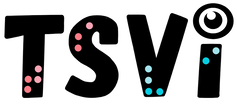- Home
-
Learn
- History of VI >
- Legislation & Laws >
- Vision Professionals >
-
VI Program Resources
>
- Program Printables
- Itinerant Teaching Tips
- Year at a Glance
- VI Program Handbook
- Caseload Analysis
- Organization & Time Management
- Professional Development
- Teacher Standards
- Professional Ethics
- Awards & Recognition
- APH Scholar Program
- Professional Organizations
- Certification Organizations
- Dealing with Challenges
- Professional Publications >
- Relatable Books for All Ages >
- Family Resources >
- Plan
- Basics
-
Teach
- Teaching Strategies >
-
Compensatory Skills Instruction
>
-
Social Skills
>
-
Self Determination
>
- Body Image & Acceptance
- Making Personal Goals
- My Vision Presentation
- My Self-Description
- Create a Personal Data Sheet
- Disclosure Decision
- Disability Statement
- Requesting Help
- Fighting Fears
- My Circle of Support
- Personal Responsibility
- Advocate for Safe Enviroments
- Having Picture Taken
- Coping with Change
- Aging Eyes
- Physical Characteristics
- Political Activism
- Laws Regarding Persons with Disabilities
-
Sensory Efficiency
>
-
Independent Living
>
- Orientation & Mobility Instruction >
- Recreation & Leisure >
-
Career & Vocation
>
-
Grow
- Complete Set Bonus >
-
Recorded Presentations
>
- Webinar: Tips for Being a "Physically Fit" TVI
- Webinar: The Art of Teaching the ECC
- Webinar: Virtual & F2F Strategies
- Webinar: Foundations of Teaching the ECC in the Age of Virtual Instruction
- Webinar: Itinerant Teaching Strategies
- Webinar: Using Themes to Teach the ECC
- Webinar: Conducting a FVLMA
- Webinar: Selecting the Right AT
- Webinar: Developing SMARTER Goals
- Webinar: Determining Service Intensity Using the VISSIT
- Webinar: Activities to Teach the ECC
- Webinar: Accessible Content for BLVI
- Webinar: Accommodations for VI
- Webinar: MIMO Strategies & Activities
- Webinar: SIDPID Strategies & Activities
- Webinar: Standard Course of Study Strategies & Activities
- Webinar: Job Tasks for Job, Career & Life
- Shop
- Jobs
Low Vision SpecialistBy: Carmen Willings
teachingvisuallyimpaired.com Updated April 9, 2020 Every individual who is legally blind or visually impaired with any usable vision should receive a low vision evaluation where they may be prescribed low vision devices that will optimize their vision. Once a person has been diagnosed as having low vision by a primary eye care provider, he or she should be referred for a clinical low vision evaluation, as part of the overall multidisciplinary rehabilitation services, to review what, if any, optical and non-optical devices would be beneficial. Unlike the role of the medical eye care provider whose role is to maximize a person’s visual capabilities through all available medical, surgical, and optical means, the role of the clinical low vision specialist is to maximize a person’s functional vision capabilities. Individuals with a visual impairment typically see this specialist when someone determines that a low vision device (optical or non-optical) might be helpful. If the individual's vision or educational needs or performance have changed, then they may be referred for a visit (or follow-up visit) to the clinical low vision specialist. Services vary, but many low vision specialists will also instruct the individual in the use of the prescribed devices and may also loan devices for a trial period and offer a follow-up visit to review the results of the trial.
Who is a Low Vision Specialist?A clinical low vision specialist may be an optometrist, an ophthalmologist, or a university-trained professional with special knowledge of low vision and optical devices. They specialize in helping individuals with limited visual ability optimize their remaining vision. They are specialized in low vision testing, diagnosis, and treatment and is trained to conduct low vision eye examinations and prescribe special low vision devices. The clinical low vision specialist will work with the individual to find the best way to enhance their vision – whether through hand-held magnifiers for near viewing, telescopes for distance viewing, special high-powered glasses for reading, and other low vision devices that will improve functional vision and increase access and independence.
The clinical low vision evaluation differs from the evaluation of the eye care specialist in many ways. The Low Vision Specialist uses special charts and materials for the assessment of distance and near visual acuity that are not routinely used in general eye examinations. It goes beyond the prescription of standard spectacles to provide optical, non-optical, and/or non-visual devices to help individuals meet their specific visual needs for distance, intermediate, and near activities. It includes the gathering of information about the individual’s functional use of vision by a clinical low vision specialist, even when optical devices may not be beneficial, to provide techniques for maximizing the functional use of vision. |
History of Visual Impairments
Professional Practice
Vision Professionals
Professionalism
Teacher Resources
Professional Publications
VI Book Resources
The Code of Federal Regulations (34 CFR), see 300.532: Assessment/Low Vision Assessment and Evaluation states that state and local educational agencies shall ensure that, at a minimum, tests and other evaluation materials must be validated and tailored to assess specific areas of educational need for individual students with visual impairments. Students must be assessed in all areas related to the suspected disability. |
|
Teaching Students with Visual Impairments LLC
All Rights Reserved |
- Home
-
Learn
- History of VI >
- Legislation & Laws >
- Vision Professionals >
-
VI Program Resources
>
- Program Printables
- Itinerant Teaching Tips
- Year at a Glance
- VI Program Handbook
- Caseload Analysis
- Organization & Time Management
- Professional Development
- Teacher Standards
- Professional Ethics
- Awards & Recognition
- APH Scholar Program
- Professional Organizations
- Certification Organizations
- Dealing with Challenges
- Professional Publications >
- Relatable Books for All Ages >
- Family Resources >
- Plan
- Basics
-
Teach
- Teaching Strategies >
-
Compensatory Skills Instruction
>
-
Social Skills
>
-
Self Determination
>
- Body Image & Acceptance
- Making Personal Goals
- My Vision Presentation
- My Self-Description
- Create a Personal Data Sheet
- Disclosure Decision
- Disability Statement
- Requesting Help
- Fighting Fears
- My Circle of Support
- Personal Responsibility
- Advocate for Safe Enviroments
- Having Picture Taken
- Coping with Change
- Aging Eyes
- Physical Characteristics
- Political Activism
- Laws Regarding Persons with Disabilities
-
Sensory Efficiency
>
-
Independent Living
>
- Orientation & Mobility Instruction >
- Recreation & Leisure >
-
Career & Vocation
>
-
Grow
- Complete Set Bonus >
-
Recorded Presentations
>
- Webinar: Tips for Being a "Physically Fit" TVI
- Webinar: The Art of Teaching the ECC
- Webinar: Virtual & F2F Strategies
- Webinar: Foundations of Teaching the ECC in the Age of Virtual Instruction
- Webinar: Itinerant Teaching Strategies
- Webinar: Using Themes to Teach the ECC
- Webinar: Conducting a FVLMA
- Webinar: Selecting the Right AT
- Webinar: Developing SMARTER Goals
- Webinar: Determining Service Intensity Using the VISSIT
- Webinar: Activities to Teach the ECC
- Webinar: Accessible Content for BLVI
- Webinar: Accommodations for VI
- Webinar: MIMO Strategies & Activities
- Webinar: SIDPID Strategies & Activities
- Webinar: Standard Course of Study Strategies & Activities
- Webinar: Job Tasks for Job, Career & Life
- Shop
- Jobs

